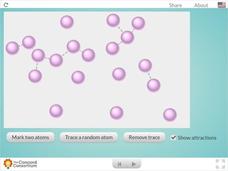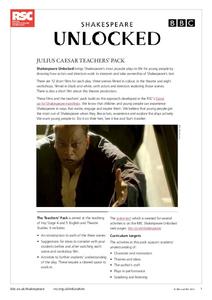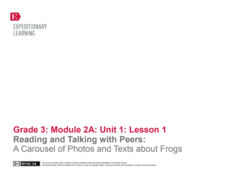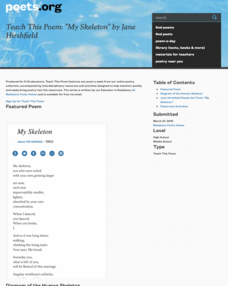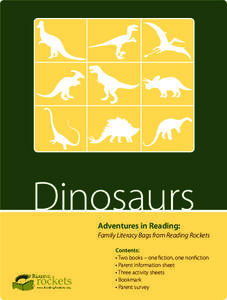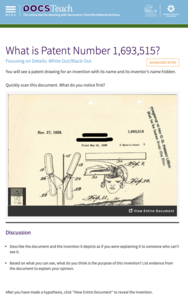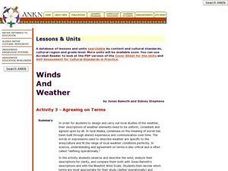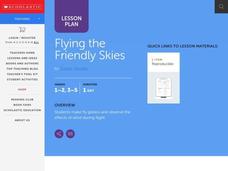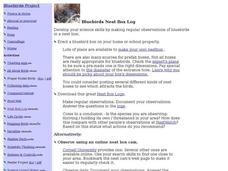Columbus City Schools
History Helps When It Comes To Plate Tectonics
Get ready to move, shake, slip, and slide with a well-rounded plate tectonics unit! The engaging resource includes everything you need to inspire eighth grade science scholars, from worksheets to demonstrations. Assess their...
Curated OER
Mirror Image
Why does practice make perfect? Give your class insight into procedural memory, where we learn to do new things — then continue to improve through repetition. By attempting to draw shapes while looking in a mirror, learners observe their...
CK-12 Foundation
Equations of Parallel Lines: Exploring Equations
Same slope, different point — what's the same and what's different about an equation? Young mathematicians use an interactive to position a line parallel to a given line and through a given point. They observe that the equation will have...
Concord Consortium
Molecular View of a Gas
Welcome to the fast-paced life of a gas atom! Learners gaze at gaseous atoms up close using a colorful interactive. They can highlight two atoms and observe their movements within their container or follow the dizzying path of one atom...
Science Matters
That’s An Otter Story
Young scientists discover how sea otters' habitats have changed due to human impact. Through conversation, video observation, and story reading, scholars identify how human interactions change a specific ecosystem in both positive and...
National Nanotechnology Infrastructure Network
Gelatin Microfluidics
Micro what? Analyze microfluidics as an application in the medical community. A lab investigation highlights the importance of channel design in biotechnology. Learners modify channels and observe the behavior of the flow of the fluids.
Physics Classroom
Free Fall
Scholars must understand freefall before they learn how objects like airplanes fly. They apply knowledge of velocity and acceleration to predict speed and direction as part of a larger series on vectors and projectiles.
BBC
Julius Caesar Teacher Pack
A great actor has the ability to make or break a play. A series of lesson plans related to William Shakespeare's Julius Caesar looks closely at the choices actors make during a production of the play to help provide insight into the...
EngageNY
Reading and Talking with Peers: A Carousel of Photos and Texts about Frogs
Frogs are the theme of a lesson plan that challenges scholars to examine photographs, read informational texts, then ask and answer questions. Scholars work collaboratelively as they rotate through stations, discuss their observations,...
Museum of Science
Worm Farm
It is not a barrel of monkeys—it's a jar of worms! Scholars create a worm farm in a spaghetti sauce jar. Pupils layer moist soil, sand, and oatmeal to create a habitat for worms. Individuals place worms into the habitat, cover it with...
Academy of American Poets
The Immigrant Experience
The Buttonhook by Mary Jo Salter is the focus of a unit that explores the immigration experience to Ellis Island. First, scholars bring in an artifact that represents their heritage. A group-exercise allows them to share and discuss...
Angel Island Immigration Station Foundation
How Do Pictures Tell the Story of Angel Island?
Young historians learn more about the history of Angel Island Immigration Station through their analysis of primary source images. Guided by a list of inferential questions, scholars learn how to make and record observations on a...
Academy of American Poets
Teach This Poem: "My Skeleton" by Jane Hirshfield
Jane Hirshfield's poem "My Skeleton" asks readers to pause and think about the amazing, often taken-for-granted structure that protects and gives form to human bodies. After observing the human skeleton's image, class members read the...
American Museum of Natural History
Make Your Own Weather Station
Scholars build a weather station equipped with a wind vane, rain gauge, and barometer. Following an informative page about the weather, learners follow steps to build their pieces then turn into meteorologists to chart the weather they...
PBS
Reading Adventure Pack: Dinosaurs
Two books—Dinosaurs by Gail Gibbons and Danny and the Dinosaur by Syd Hof—begin a learning experience in which scholars complete three creative, imaginative, and real-world activities. First, pupils create a puzzle featuring their...
National Endowment for the Humanities
“The Great Migration” by Minnie Bruce Pratt
Minnie Bruce Pratt's poem, "The Great Migration," offers young scholars an opportunity to reflect on how where we come from influences who we are. Groups conduct a close reading of the poem, recording observations about the poem's...
DocsTeach
What is Patent Number 1,693,515?
Scholars examine a document from 1928 featuring a mystery invention. Following their observations and discussion, the document reveals the invention of the permanent wave machine by Marjorie S. Joyner. Class members read about Joyner,...
Curated OER
Following Directions - Ndakinna Wilderness Project
Students draw a diagram of the steps used to camouflage a person. In this biology lesson, students watch and take notes on a video about using camouflage as a tool to observe nature. Then students follow instructions to create a diagram...
Curated OER
Agreeing on Terms
Students observe and describe the wind, analyze their descriptions for clarity, and compare them both with Jonas Ramoth's descriptions and with the Beaufort Wind Scale. observations.
Curated OER
Flying The Friendly Skies
Young scholars investigate the science of flight while creating their own gliders and test them with the lift supplied by wind in the outdoors. They create a chart to make observations of the flight patterns of different gliders taking...
Curated OER
Bluebirds Nest Box Log
In this bluebirds nest learning exercise, students follow directions on how to make a blue bird nest and then answer the short answer questions about it. Students click on the links and answer the questions.
Curated OER
Comparing Seeds
Students explore the process of growing plants from seeds. In this hands-on science experiment, students observe different seeds (store bought vs. those directly from food items) and predict growing patterns.
Curated OER
Scientific Thinking
Students participate in four different activities which reinforce an understanding of they way scientists think about the world. They make careful observations of two different pennies, write the procedure for making a peanut butter and...
Curated OER
Stereotypes: More Than Meets the Eye
Students explore the concept of stereotyping. They observe images and media that portray the Middle East and its inhabitants. Students make determinations about the impact of the images on their perceptions. They consider ways to...
Other popular searches
- Euglena Direct Observation
- Eugenia Direct Observation
- Euglenda Direct Observation
- Glenda Direct Observation
- What Is Direct Observation





